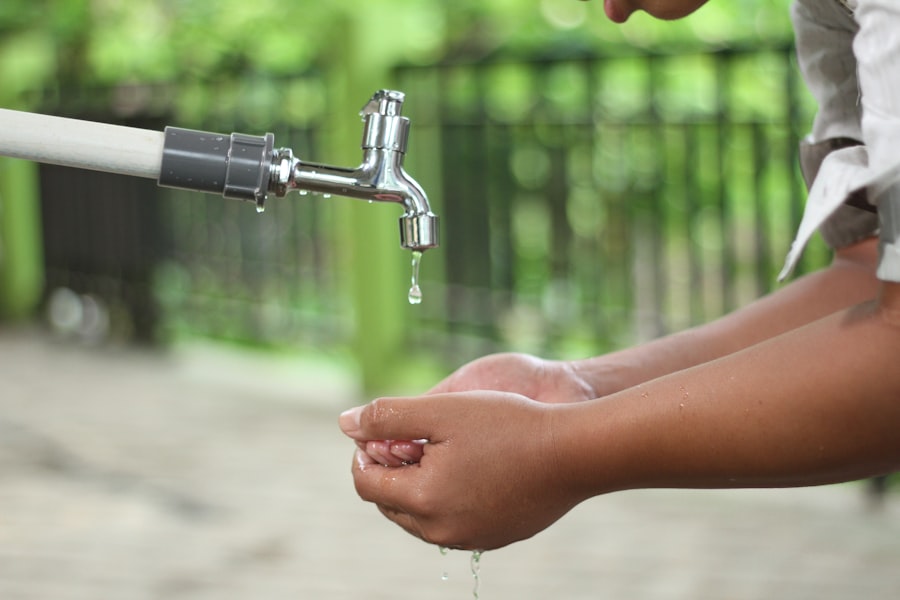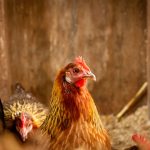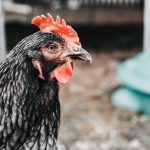Proper nutrition is crucial for the health and well-being of animals in captivity. A balanced diet that meets the specific nutritional needs of each species is essential, including the appropriate proportions of protein, carbohydrates, fats, vitamins, and minerals. Consistent and regular feeding schedules ensure animals receive the necessary nutrients for optimal health.
Access to clean, fresh water should be provided at all times. Consideration of feeding behavior is important when caring for captive animals. Some species may benefit from enrichment activities that encourage natural foraging behaviors, while others may require specialized feeding equipment to prevent overeating or food aggression.
Regular monitoring of body condition is necessary to prevent obesity or malnutrition, with dietary adjustments made as needed. Proper nutrition and feeding practices are fundamental to maintaining the health and well-being of animals in captivity. This includes providing species-specific diets, maintaining consistent feeding schedules, considering natural feeding behaviors, and monitoring overall health.
By addressing these factors, caretakers can ensure that captive animals receive the nutrition they need to thrive.
Table of Contents
Key Takeaways
- Proper nutrition is essential for the health and well-being of animals, and it is important to provide a balanced diet that meets their specific needs.
- Clean and comfortable housing is crucial for the overall health and welfare of animals, and it is important to provide a clean and safe environment for them to live in.
- Disease prevention and biosecurity measures are important to protect animals from illness and to prevent the spread of disease within a facility.
- Regular health checks and monitoring are necessary to ensure the well-being of animals and to detect any health issues early on.
- Adequate space and ventilation are important for the physical and mental well-being of animals, and it is important to provide enough space and proper ventilation in their living environment.
- Stress management and environmental enrichment are important for the mental well-being of animals, and it is important to provide a stimulating and enriching environment for them.
- Proper handling and transportation are important to ensure the safety and well-being of animals during transportation and when being handled.
Clean and Comfortable Housing
Designing Safe and Healthy Environments
Housing should be constructed from materials that are safe for the animals and easy to clean and disinfect. In addition to providing adequate space and environmental enrichment, it is important to maintain a clean and hygienic living environment for the animals. This includes regular cleaning of enclosures, bedding, and feeding areas, as well as proper waste management practices.
The Importance of Cleanliness
Cleanliness is essential for preventing the spread of disease and ensuring the overall health and well-being of the animals. Regular cleaning and disinfection of enclosures, bedding, and feeding areas can help prevent the spread of disease and keep the animals healthy.
Providing a Safe and Healthy Living Environment
Overall, clean and comfortable housing is essential for providing a safe and healthy living environment for animals in captivity. By providing adequate space, meeting specific environmental needs, and maintaining a clean and hygienic environment, animal caretakers can help ensure the health and well-being of the animals in their care.
Disease Prevention and Biosecurity

Disease prevention and biosecurity are essential for maintaining the health of animals in captivity. This includes implementing strict biosecurity protocols to prevent the introduction and spread of infectious diseases. This may include measures such as quarantine procedures for new arrivals, strict hygiene practices for staff and visitors, and regular health screenings for the animals.
In addition to biosecurity measures, it is important to implement a comprehensive disease prevention program that includes vaccination, parasite control, and regular health checks. This can help to prevent common diseases and ensure that any health issues are identified and treated promptly. Overall, disease prevention and biosecurity are essential for maintaining the health and well-being of animals in captivity.
Disease prevention and biosecurity are essential for maintaining the health of animals in captivity. This includes implementing strict biosecurity protocols to prevent the introduction and spread of infectious diseases through measures such as quarantine procedures for new arrivals, strict hygiene practices for staff and visitors, and regular health screenings for the animals. In addition to biosecurity measures, it is important to implement a comprehensive disease prevention program that includes vaccination, parasite control, and regular health checks.
This can help to prevent common diseases and ensure that any health issues are identified and treated promptly.
Regular Health Checks and Monitoring
Regular health checks and monitoring are essential for maintaining the health and well-being of animals in captivity. This includes regular physical examinations by a veterinarian to assess the overall health of the animals, as well as monitoring for any signs of illness or injury. It is also important to monitor the behavior and eating habits of the animals to identify any changes that may indicate a health issue.
In addition to regular health checks, it is important to keep detailed records of the health status of each animal, including vaccinations, treatments, and any health issues that arise. This can help to identify any patterns or trends in the health of the animals and ensure that any issues are addressed promptly. Overall, regular health checks and monitoring are essential for maintaining the health and well-being of animals in captivity.
Regular health checks and monitoring are essential for maintaining the health and well-being of animals in captivity. This includes regular physical examinations by a veterinarian to assess the overall health of the animals, as well as monitoring for any signs of illness or injury. It is also important to monitor the behavior and eating habits of the animals to identify any changes that may indicate a health issue.
In addition to regular health checks, it is important to keep detailed records of the health status of each animal, including vaccinations, treatments, and any health issues that arise. This can help to identify any patterns or trends in the health of the animals and ensure that any issues are addressed promptly.
Adequate Space and Ventilation
Adequate space and ventilation are essential for providing a safe and healthy living environment for animals in captivity. Animals should have enough space to move around freely and exhibit natural behaviors without feeling cramped or confined. In addition to providing adequate space, it is important to ensure proper ventilation in housing facilities to maintain air quality and prevent the buildup of harmful gases or pathogens.
Proper ventilation can help regulate temperature, humidity, and air quality within housing facilities, which is essential for maintaining the health and well-being of animals. It is also important to consider natural lighting in housing facilities to provide a day-night cycle that mimics natural conditions. Overall, adequate space and ventilation are essential for providing a safe and healthy living environment for animals in captivity.
Adequate space and ventilation are essential for providing a safe and healthy living environment for animals in captivity. Animals should have enough space to move around freely and exhibit natural behaviors without feeling cramped or confined. In addition to providing adequate space, it is important to ensure proper ventilation in housing facilities to maintain air quality and prevent the buildup of harmful gases or pathogens.
Proper ventilation can help regulate temperature, humidity, and air quality within housing facilities, which is essential for maintaining the health and well-being of animals.
Stress Management and Environmental Enrichment

Providing Opportunities for Natural Behaviors
Environmental enrichment involves providing opportunities for animals to engage in natural behaviors such as climbing, digging, or exploring. This can be achieved through the provision of enrichment activities with caregivers or social interactions with conspecifics. By doing so, animals can express their natural behaviors, reducing stress and promoting mental stimulation.
Minimizing Stressors in the Environment
In addition to environmental enrichment, it is essential to minimize stressors in the environment that can negatively impact animal well-being. This includes reducing loud noises, overcrowding, and sudden changes in routine. By providing a predictable routine with regular feeding times, social interactions, and enrichment activities, animals can feel more secure and relaxed.
Creating a Predictable Routine
A predictable routine is vital for reducing stress levels in captive animals. This can be achieved by providing regular feeding times, social interactions, and enrichment activities. By doing so, animals can feel more secure and relaxed, reducing the likelihood of stress and anxiety.
Proper Handling and Transportation
Proper handling and transportation practices are essential for ensuring the safety and well-being of animals during movement between locations. This includes using appropriate handling techniques that minimize stress or injury to the animals during capture or restraint. It is also important to provide secure transportation containers that are designed to minimize movement during transport.
In addition to proper handling techniques, it is important to consider factors such as temperature control, ventilation, and access to food and water during transportation. Animals should be monitored closely during transport to ensure their safety and well-being throughout the journey. Overall, proper handling and transportation practices are essential for ensuring the safety and well-being of animals during movement between locations.
Proper handling and transportation practices are essential for ensuring the safety and well-being of animals during movement between locations. This includes using appropriate handling techniques that minimize stress or injury to the animals during capture or restraint. It is also important to provide secure transportation containers that are designed to minimize movement during transport.
In addition to proper handling techniques, it is important to consider factors such as temperature control, ventilation, access to food and water during transportation while monitoring closely during transport to ensure their safety throughout the journey.
If you’re interested in learning more about keeping chickens healthy, you may also want to check out this article on choosing the right flooring for your chicken coop. Ensuring that your broiler chickens have a clean and suitable environment to live in is crucial for their overall health and well-being.
FAQs
What are broiler chickens?
Broiler chickens are a type of chicken that are specifically bred and raised for meat production. They are typically raised for a short period of time, usually around 6-8 weeks, before being processed for meat.
How can I keep broiler chickens healthy?
To keep broiler chickens healthy, it is important to provide them with a clean and comfortable living environment, access to clean water and high-quality feed, and regular monitoring for signs of illness or disease. Additionally, proper ventilation and space in the housing area are important for their health.
What should I feed broiler chickens to keep them healthy?
Broiler chickens should be fed a balanced diet that includes a high-quality commercial feed specifically formulated for their nutritional needs. This feed should be supplemented with clean water and, if necessary, additional nutrients such as vitamins and minerals.
What are some common health issues in broiler chickens?
Common health issues in broiler chickens include respiratory diseases, coccidiosis, and heat stress. It is important to monitor the chickens for signs of illness and to seek veterinary care if any health issues arise.
How can I prevent diseases in broiler chickens?
Preventing diseases in broiler chickens involves maintaining a clean and sanitary living environment, providing proper nutrition and access to clean water, and implementing biosecurity measures to prevent the introduction and spread of diseases. Regular vaccination and monitoring for signs of illness are also important for disease prevention.
Meet Walter, the feathered-friend fanatic of Florida! Nestled in the sunshine state, Walter struts through life with his feathered companions, clucking his way to happiness. With a coop that’s fancier than a five-star hotel, he’s the Don Juan of the chicken world. When he’s not teaching his hens to do the cha-cha, you’ll find him in a heated debate with his prized rooster, Sir Clucks-a-Lot. Walter’s poultry passion is no yolk; he’s the sunny-side-up guy you never knew you needed in your flock of friends!







